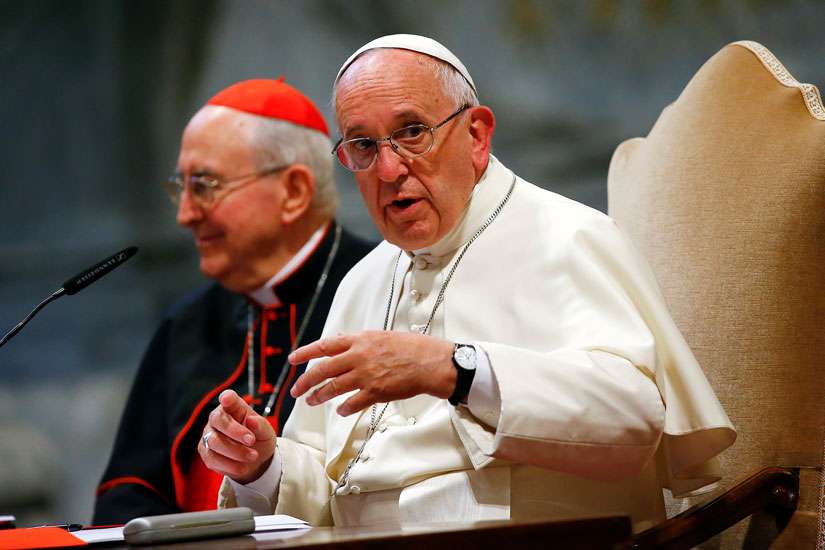Raising a point he has raised before, and one also raised by now-retired Pope Benedict XVI, Pope Francis insisted June 16 that the validity of a marriage implies that a couple understands that sacramental marriage is a bond that truly binds them to another for their entire lives.
"We are living in a culture of the provisional," he told participants in the Diocese of Rome's annual pastoral conference.
Answering questions after giving a prepared talk, Pope Francis told the story of a bishop who said a university graduate came to him saying he wanted to be a priest, but only for 10 years.
The idea of commitments being temporary "occurs everywhere, even in priestly and religious life. The provisional. And for this reason a large majority of sacramental marriages are null. They say 'yes, for my whole life,' but they do not know what they are saying because they have a different culture," he said.
The Vatican press office, publishing a transcript the next day, adjusted the Pope's words to read, "A part of our sacramental marriages are null because they (the spouses) say, 'Yes, for my whole life,' but they do not know what they are saying because they have a different culture."
Attitudes toward marriage are influenced strongly by social expectations, the Pope said, telling the story of a young man who told the Pope he and his fiancee had not celebrated their wedding yet because they were looking for a church with decor that would go well with her dress.
"These are people's concerns," the Pope said. "How can we change this? I don't know."
Pope Francis told participants that when he was archbishop of Buenos Aires, Argentina, he banned "shotgun weddings" from Catholic parishes because the strong social pressure to marry placed on a couple expecting a baby could mean they were not fully free to pledge themselves to each other for life through the sacrament.
It was important, he said, that the couples were not abandoned, but were assisted by the Church. Many of them, he said, "after two or three years would marry. I would watch them enter the church — dad, mom and the child holding their hands. They knew well what they were doing."
"The crisis of marriage is because people do not know what the sacrament is, the beauty of the sacrament; they do not know that it is indissoluble, that it is for one's entire life," he said. "It's difficult."


